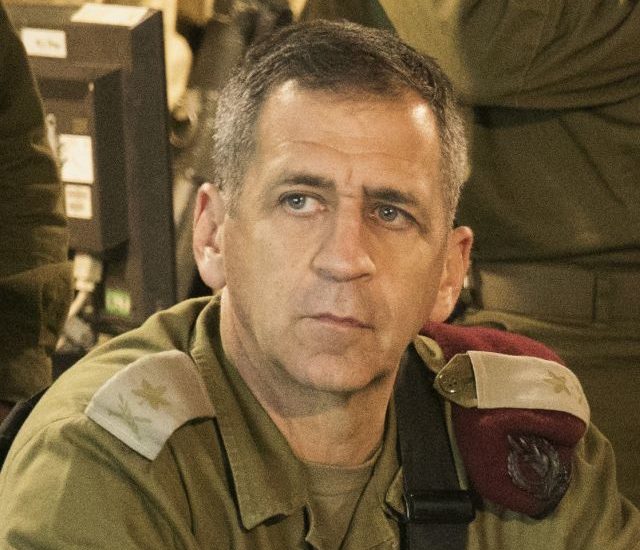
Israeli Army Asked for Billions in Additional Funding to Prepare for Attack on Iran
Israeli Army Asked for Billions in Additional Funding to Prepare for Attack on Iran
Six months ago the chief of staff ordered a “battle procedure” for an attack on Iran, in order to prevent Teheran from having a nuclear weapon. Netanyahu and Gantz support the request

In 2020 the IDF received no less than NIS 2.5 billion ($770 million) in supplemental appropriations beyond the amount originally appropriated to it for that year. In a few days from now Israel’s national security and defense inner cabinet will meet to approve the Israel Defense Forces total budget for 2021. Israel’s daily paper Yediot Ahronot has learned that the Israel Defense Forces are looking for NIS 4 Billion ($1.23 Billion) more than the total budget allotted for 2021.
In addition to this amount, IDF Chief of Staff Major General Aviv Kochavi is requesting another supplement of about NIS 3 billion ($920 Million), in order to finance the Israeli military’s preparedness for a possible attack on Iran. Such an attack would be to prevent Iran’s from developing nuclear weapons.
The additional amount of money is said to be only the minimum required by the Israeli Air Force to prepare for such an attack. General Kochavi has the unequivocal support of both Prime Minister Benjamin Netanyahu and Defense Minister Beny Gantz. This comes as the Israeli government currently lacks specific knowledge as to any changes being made by the new Biden administration to America’s policies toward Iran.
Kochavi has already begun preparation of a battle plan for a possible attack on Iran – a structured process from defining the mission, planning to carry out the mission – and he knows exactly what he needs, since attacking Iran probably means war in the north and possibly even in the south of that country. Armaments of all kinds from defensive missiles to offensive air to surface missiles will be needed.
The chief of staff’s decision to launch a “battle plan” for a possible attack on Iran was made around the spring of last year, when it became clear that the Iranians had reached a very advanced stage in the development of a new generation of fast uranium enrichment centrifuges.
These centrifuges (IR-8, IR-6 and IR-10 models) are capable of enriching uranium at a rate six times or even ten times the speed of the old P-2 centrifuges used by the Iranians so far (these are based on technology and components acquired by the Iranians from the Pakistani nuclear scientist ‘Abd al-Qadir Khan).
The introduction of the new centrifuges for use shortens, by many months, the so-called “bombing” – the period of time between the decision to produce nuclear weapons until a sufficient amount (28 kg) of enriched uranium is accumulated to 90%, which is a fissile material with which to produce one nuclear warhead, at the power of the bomb that destroyed Hiroshima.
The team working on the Iranian nuclear project even installed several arrays of such new centrifuges in the enrichment facility at Natanz and began operating them, until July when most of them were destroyed in a mysterious explosion attributed to Israel.
The completion of the development of the new centrifuges in Iran and their installation into action has caused great concern in Jerusalem because it allows Iran to put the world and Israel in front of a fait accompli: that it has nuclear weapons or even the ability to produce them in a matter of weeks.
In such a situation, Israel, the United States and other countries in the world will not have time to act diplomatically or prepare militarily to thwart Iran’s entry into the “atomic club.” The consequences are clear, so Chief of Staff Kochavi decided more than six months ago to begin preparations so that Israel will have a credible military option that will allow it alone to thwart a possible Iranian invasion of the bomb. Also, so that Israel will be able to neutralize the threat, the operational plan must be available, accurate and destructive.
Read more about: idf, Israel-Iran Nuclear War, Nuclear weapons








